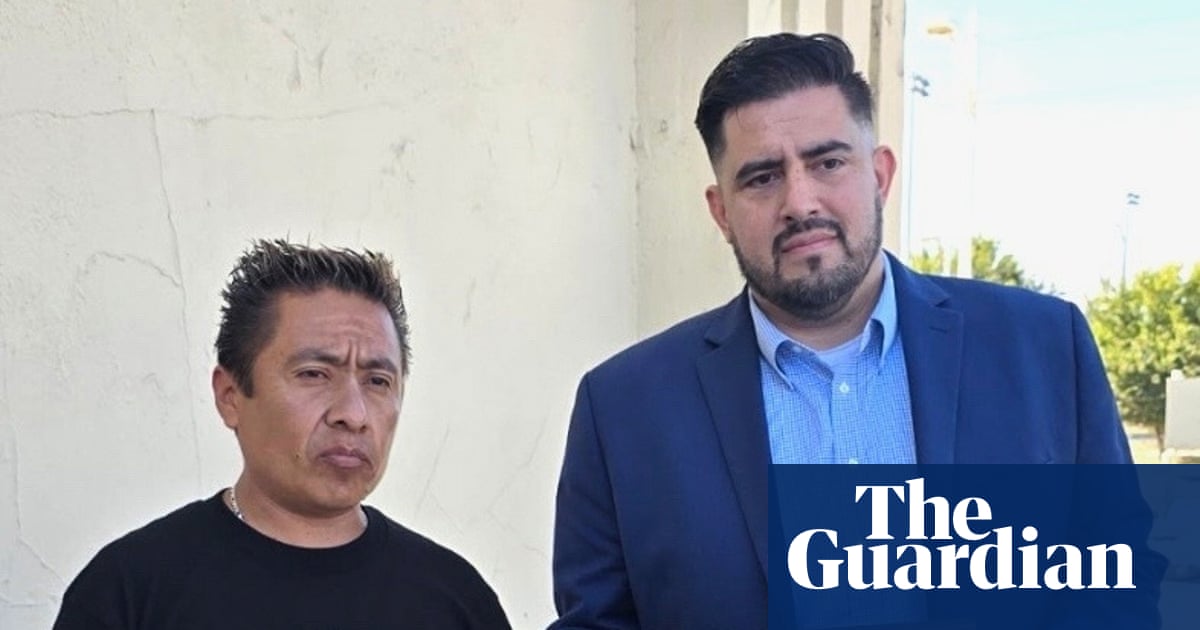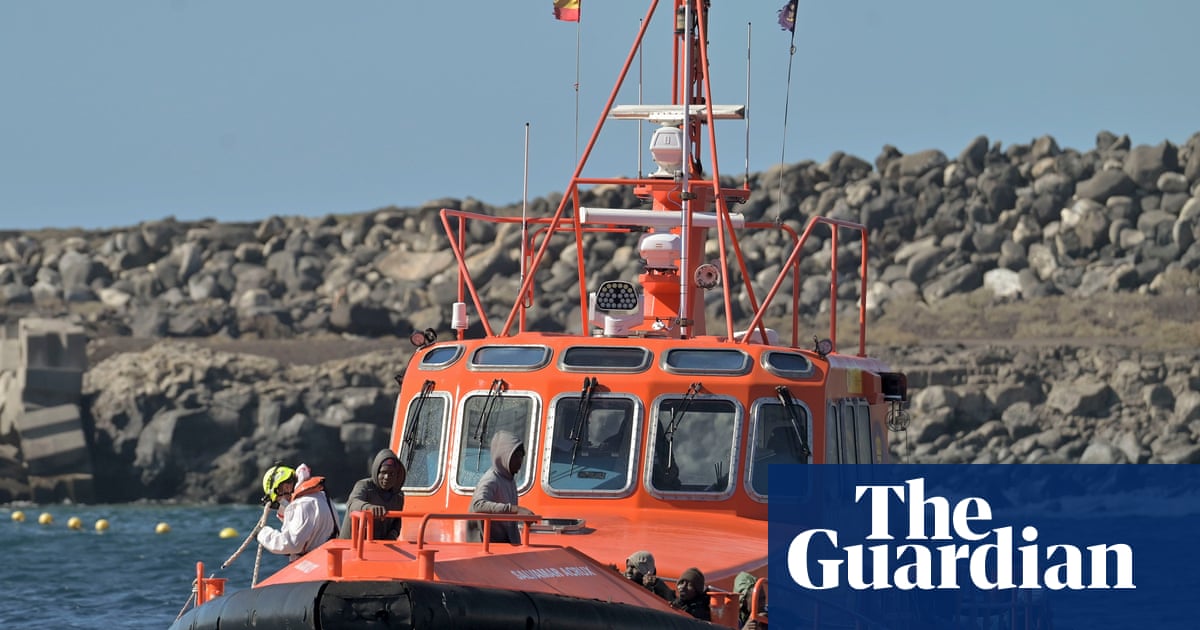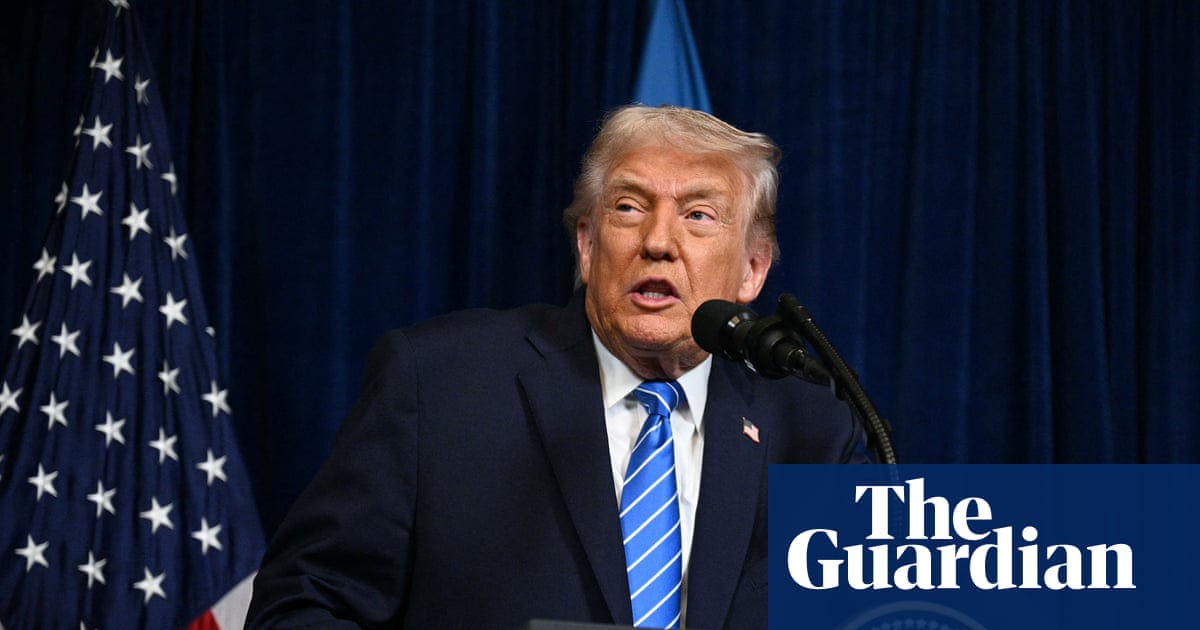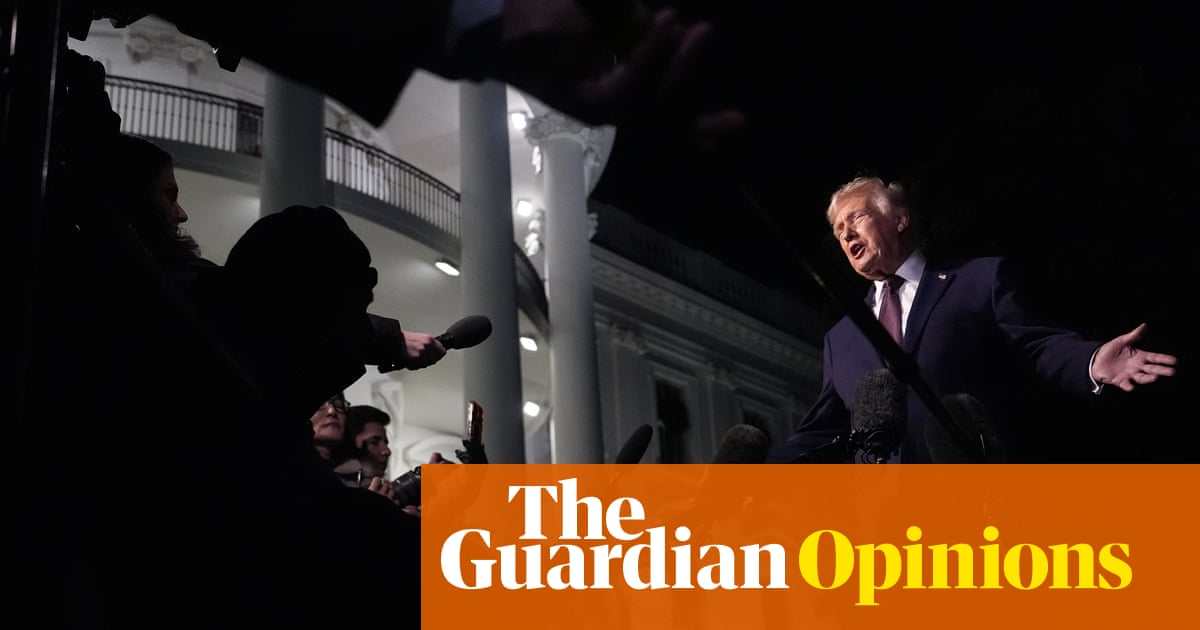Israel army says will use 'unprecedented force' in Gaza City and urges residents to leave
The Israeli military warned on Friday it will operate with “unprecedented force” in Gaza City, urging residents to flee southwards while announcing the closure of a temporary evacuation route opened 48 hours earlier.
In a post on X addressing residents of Gaza City, the military’s Arabic-language spokesperson, Avichay Adraee, said:
From this moment, Salah al-Din road is closed for southbound travel. The Israeli Defence Forces will continue to operate with unprecedented force against Hamas and other terrorist organisations.
He added the only possible route south was via Al-Rashid street and urged residents to “take this opportunity and join the hundreds of thousands of city residents who have moved south to the humanitarian area”.
Strikes by Israeli artillery, tanks and warplanes hit Gaza City again on Thursday as a UN official said “new waves of mass displacement” were under way, after about 60,000 fled the new assault in 72 hours earlier this week.
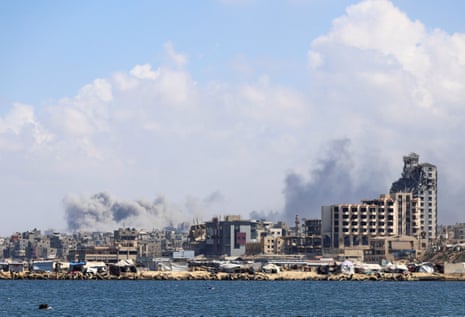
Israeli military officials said Gaza City was a “Hamas stronghold” and that as many as 450,000 civilians had left. The estimate was based on multiple sources, including drone surveillance, an official told the Guardian.
Swathes of Gaza City, once a busy commercial and cultural hub, have been reduced to uninhabitable ruins. Until weeks ago, more than a million people were living there, many already displaced numerous times.
More on this in a moment, but first here are a number of other key developments:
-
More than a quarter of a million people have been displaced from Gaza City in the last month, according to figures from the UN, with tens of thousands more forced to flee makeshift homes and shelters daily in the face of a new Israeli offensive.
-
UK prime minister Keir Starmer has insisted the timing of the UK announcement that it could recognise the state of Palestine as early as Friday has nothing to do with Donald Trump’s visit, even though the US president said at a press conference that he disagreed with Britain’s decision, without elaborating.
-
More than 140 world leaders will arrive in New York next week for the annual United Nations general assembly summit, which will be dominated this year by the future of the Palestinians and Gaza. One world leader who will miss the gathering is Mahmud Abbas, the Palestinian president who Washington denied US visas to attend, along with his officials.
-
The US once again has vetoed a UN security council resolution that had demanded an immediate and permanent ceasefire in Gaza and the release of hostages. It also expressed alarm about a recent famine report and Israel’s expanding offensive in Gaza City. The 14 other members of the United Nations’ most powerful body voted in favor of the resolution Thursday
Key events Show key events only Please turn on JavaScript to use this feature
More than 250,000 displaced from Gaza City in past month, UN figures show

Jason Burke
More than a quarter of a million people have been displaced from Gaza City in the last month, according to figures from the UN, with tens of thousands more forced to flee makeshift homes and shelters daily in the face of a new Israeli offensive.
Strikes by Israeli artillery, tanks and warplanes hit Gaza City again on Thursday as a UN official said “new waves of mass displacement” were under way, after about 60,000 fled the new assault in 72 hours earlier this week.
Israeli military officials say the total number following Israeli orders to evacuate Gaza City is much higher.
An unbroken column of traffic heavily laden with household utensils, blankets, mattresses, gas cylinders and often entire families packed Gaza’s narrow coastal road on Thursday as a steady stream of Palestinians headed south towards areas designated by Israel.
Prices for transport have soared, forcing some to walk, laden with belongings and young children. “We are heading to go sleep on the streets towards the beach, like this, barefoot … We don’t know where to go,” said Yasser Saleh, speaking as he stood on a rickety trailer being pulled by a car.
Israeli military officials said Gaza City was a “Hamas stronghold” and that as many as 450,000 civilians had left. The estimate was based on multiple sources, including drone surveillance, an official told the Guardian.
Israeli forces now control Gaza City’s eastern suburbs and in recent days have moved into the Sheikh Radwan and Tel al-Hawa areas, from where they would be positioned to advance on the central and western districts where most of the remaining population is sheltering.
Swathes of Gaza City, once a busy commercial and cultural hub, have been reduced to uninhabitable ruins. Until weeks ago, more than a million people were living there, many already displaced numerous times.
German chancellor Friedrich Merz and Spanish prime minister Pedro Sánchez on Thursday acknowledged differences over the Gaza conflict after talks in Madrid, reports Agence France-Presse (AFP).
The two governments hold “divergent views” on the conflict and draw “different conclusions” regarding the situation, Merz said at a news conference with Sanchez.
The conservative German chancellor said that Germany stood “firmly” with Israel but described its military response in Gaza as “disproportionate”.
“Criticism of the Israeli government must be possible, but we must never allow it to be used to incite hatred against Jews,” he said, adding that he and Sánchez agreed on this point. But unlike Sánchez, Merz avoided calling the Israeli offensive in Gaza a “genocide” and made clear that Germany currently had no plans to recognise a Palestinian state, as Spain has done. “This is not on the agenda,” he said.
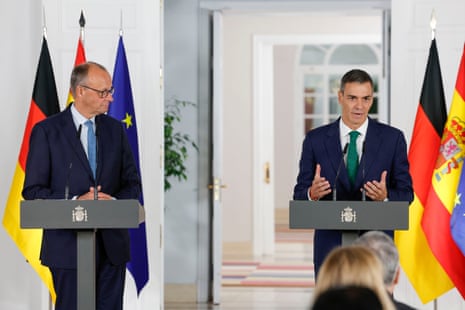
On proposed EU sanctions against Israel, Merz said Germany would finalise its position in the coming days and present it at an EU Council meeting on 1 October in Copenhagen.
Sánchez, meanwhile, voiced his full support for the European Commission’s proposed sanctions against Israel, warning that the country’s Gaza offensive would leave it “more isolated”.
Spain’s left-wing government has been one of Europe’s most outspoken critics of Israeli prime minister Benjamin Netanyahu and his military campaign in Gaza, launched in response to the Hamas attack on Israel in October 2023.
On Monday, Sánchez called for Israel to be barred from international sporting events over the war in Gaza, where the UN says Palestinians face starvation.
In the latest episode of the Guardian’s Today in Focus podcast, diplomatic editor Patrick Wintour and Arab Barghouthi, who advocates on behalf of his father, Marwan, a Palestinian political leader commonly referred to as ‘Palestine’s Mandela’, speak with host Nosheen Iqbal about what is motivating the UK’s imminent recognition of Palestine and why it matters.
You can listen to the podcast here:
UK preparing to recognise Palestinian state as early as Friday

Patrick Wintour
The UK is preparing to recognise the state of Palestine as early as Friday, after Israel failed to meet conditions that would have postponed the historic step, including a ceasefire in Gaza.
Keir Starmer insisted the timing of the UK announcement had nothing to do with Donald Trump’s visit, even though the US president said at a press conference that he disagreed with Britain’s decision, without elaborating.
Recognition will bring a wave of criticism from Israel, including claims that it is a reward for Hamas and terrorism, a charge the UK rejects by saying it envisages only a Palestinian state in which Hamas is disarmed, plays no part in the future government, and the leadership of the Palestinian Authority is subject to elections within a year.
Starmer emphasised there would be no place for Hamas, insisting the group were terrorists, and adding he agreed with Trump on the need for a roadmap.
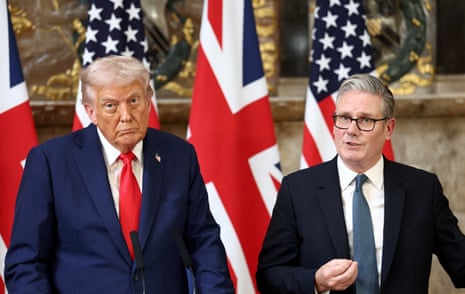
The UK prime minister said recognition was “part of that overall package which hopefully takes us from the appalling situation we’re in now to the outcome of a safe and secure Israel, which we do not have, and a viable Palestinian state”.
The US, now in effect opposed to a two-state solution as unobtainable and undesirable, has rejected the UK move as unhelpful, but Trump has decided not to make the matter a point of division with Starmer given Washington sees it as a largely symbolic act that will not weaken Israel. The president has his own private frustrations with the Israeli prime minister Benjamin Netanyahu’s refusal to agree a ceasefire, as well as his bombing of Qatar last week.
The UK Foreign Office had long parried calls for recognition, saying the step should only be taken when it had maximum impact on the peace process. Following intense consultations with French diplomats, the UK shifted to backing recognition four days after Emmanuel Macron made his announcement on 25 July.
The delay gave Starmer time to talk privately to Trump on his visit to Scotland, and to set conditions that if fulfilled would delay UK recognition of Palestine. These included a resumption of humanitarian aid, a ceasefire, Israeli engagement in a sustained peace process, and no further Israeli land annexations in the West Bank. Israel was never likely to meet these preconditions, making UK recognition largely an issue of timing rather than content.
Israel army says will use 'unprecedented force' in Gaza City and urges residents to leave
The Israeli military warned on Friday it will operate with “unprecedented force” in Gaza City, urging residents to flee southwards while announcing the closure of a temporary evacuation route opened 48 hours earlier.
In a post on X addressing residents of Gaza City, the military’s Arabic-language spokesperson, Avichay Adraee, said:
From this moment, Salah al-Din road is closed for southbound travel. The Israeli Defence Forces will continue to operate with unprecedented force against Hamas and other terrorist organisations.
He added the only possible route south was via Al-Rashid street and urged residents to “take this opportunity and join the hundreds of thousands of city residents who have moved south to the humanitarian area”.
Strikes by Israeli artillery, tanks and warplanes hit Gaza City again on Thursday as a UN official said “new waves of mass displacement” were under way, after about 60,000 fled the new assault in 72 hours earlier this week.

Israeli military officials said Gaza City was a “Hamas stronghold” and that as many as 450,000 civilians had left. The estimate was based on multiple sources, including drone surveillance, an official told the Guardian.
Swathes of Gaza City, once a busy commercial and cultural hub, have been reduced to uninhabitable ruins. Until weeks ago, more than a million people were living there, many already displaced numerous times.
More on this in a moment, but first here are a number of other key developments:
-
More than a quarter of a million people have been displaced from Gaza City in the last month, according to figures from the UN, with tens of thousands more forced to flee makeshift homes and shelters daily in the face of a new Israeli offensive.
-
UK prime minister Keir Starmer has insisted the timing of the UK announcement that it could recognise the state of Palestine as early as Friday has nothing to do with Donald Trump’s visit, even though the US president said at a press conference that he disagreed with Britain’s decision, without elaborating.
-
More than 140 world leaders will arrive in New York next week for the annual United Nations general assembly summit, which will be dominated this year by the future of the Palestinians and Gaza. One world leader who will miss the gathering is Mahmud Abbas, the Palestinian president who Washington denied US visas to attend, along with his officials.
-
The US once again has vetoed a UN security council resolution that had demanded an immediate and permanent ceasefire in Gaza and the release of hostages. It also expressed alarm about a recent famine report and Israel’s expanding offensive in Gaza City. The 14 other members of the United Nations’ most powerful body voted in favor of the resolution Thursday
Emmanuel Macron says recognising Palestinian state will isolate Hamas
French president Emmanuel Macron saidon Thursday that recognising a Palestinian state would isolate the militant group Hamas and reiterated his condemnation of Israel’s devastating offensive in Gaza.
Speaking in English in an interview with Israeli television’s Channel 12, Macron said:
Recognising a Palestinian state is just deciding to say: ‘The legitimate perspective of Palestinian people and what they suffer today has nothing to do with Hamas.’
Recognition of a Palestinian state is the best way to isolate Hamas.
France and the UK are among several western countries that have pledged to formally recognise a Palestinian state this month at the United Nations general assembly.
Their plan aims to sideline Hamas and allow a two-state solution to the decades-long Arab-Israeli conflict – a proposal resisted by Israel’s prime minister Benjamin Netanyahu.
It has been reported that the UK is now preparing to recognise the state of Palestine as early as Friday, after Israel failed to meet conditions that would have postponed the historic step, including a ceasefire in Gaza.
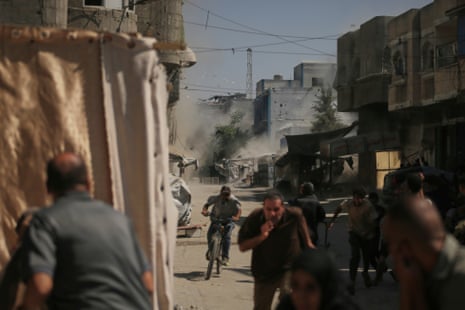
With Israeli settlers pushing to occupy Palestinian territory in the West Bank, Macron said it was now the “last minute before proposing the two states would become totally impossible”.
According to Agence France-Presse (AFP), Israeli tanks and jets pounded Gaza City on Thursday in a major ground offensive.
“This type of operations in Gaza is totally counterproductive” and “a failure”, Macron said:
You are completely destroying the image and the credibility of Israel, not just in the region, but in public opinion everywhere.

 3 months ago
62
3 months ago
62

